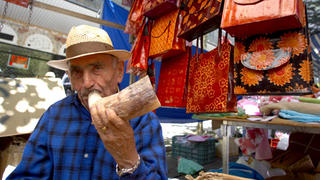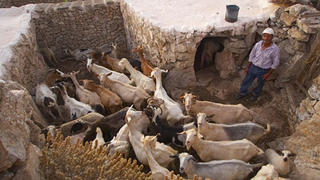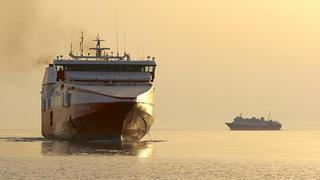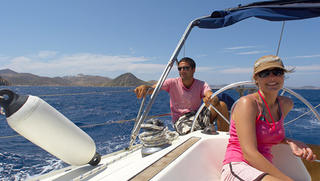
Standing on the corner of Calle de Toledo I could listen to an arabic jazz band go wild I picked out a nice lithographic etching to add to my travel wall. I could have bought some truly beautiful leather bags, purses and wallets but I was overwhelmed with choice and indecision. I didnt even take a picture of them. When the band moved on the air was silent for but a moment and the empty space filled with the latin music of a stall. Every form of traditional and regional spanish music from what I could tell.
Further along the street the quality drops off a bit but the intensity of the crowds goes up a notch. Tourists and locals alike mill down the tree lined streets like a slow moving river, forming transient eddies around stalls of note. T-Shirts were predictably popular but offer great value for just 5 Euros. Spanish fans for the senioritas are ornate but compete with the cheaper asian versions and the quality of each product suffers as a result. Most of the jewellery is from India and Thailand too, but a number of Madrid artists offer their ceramic alternatives for those with an eye for detail and originality.
On the side streets little clusters of shops proliferate. Oil paintings take over one section entirely with stalls setup while the artist paints from a photo, and shops that spill out onto the river of shoppers . Here the value was far less compelling but the choice generally excellent. Another street was tip-to-toe with pets and in particular caged birds. I'm no authority on the subject but they seemed to be primarily canaries and they were enough of them to feed all the cats in Greece. I kept moving on and managed to avoid buying all manner of enticements such as... giant flags of Espana with El Toro emblazened across the stripes, flamenco dresses for girls under five, thai silk scarves as you would find in Bangkok's sunday market, and camel leather bags brought over from Morocco.
By mid-afternoon the tide began to ebb. You could feel it. The colourful jazz expressions had given way to mellow blues rifts, the bedazzled beam of the eager shopper had melted a little under the sun, and the vendors themselves were greeting the potential buyers with a weary expression born of a desire to be home for siesta.
I grabbed what I needed and headed for the corner just as the first stalls began pulling down the merchandise and packing away into cartons. Having emptied my wallet and filled my bag I was in desperate need of food and drink. I found both.
Most tapas bars will offer seafood of some sort, even in Madrid, but this one was special. They *only* did seafood. The special of the day was a tapas plate of sardines for 1 Euro. A full rashion would set you back 3.20 Euros. Forget a bread roll with ham and don't bother asking for a salad. The menu only had 6 items on it, all yummy offerings from the mediterenean and grilled or fried on the spot. I looked for somewhere to put my bag down and realised there wasn't one - the floor was ankle deep in discarded serviettes, prawn shells and sardine bones. No lie. I was standing in the rubbish bin. This is common for tapas bars to toss unwanted bits on the floor by the bar, but when a place turns over 100 people an hour since 12 noon the result is a mountain of mess.
Naturally, I was only encouraged by the sight. The food must be good! I couldnt come at the sardines, they were too fresh from the ocean for someone precariously holding a rolled up poster of a matodor and a small etched print. Presents are most gratefully received when they are not covered in fish oil, scales and rock salt. The calamari however is served with a modified toothpick and can be consumed relatively cleanly. "Tinto de verano, y, calamares grande por favour!" I downed my tinto so fast the ice cubes could have stuck to my lips. The calamari was incredible. Again. Flakes of rock salt cut through the freshly fried strips. As I devoured my plate and a second tinto I watched the old lady hover around the grill, tending to batches of neatly prepared squid and sardines with one hand while flipping at the griller with the other.
We exchanged a few smiles and I took a photo. She must have thought I had a lost a few marbles. (The hardest part about being a photographer is the number of times you willingly make yourself look like a dick.)
I was nearly done. I had slowed down about half way through. Why is it that the better the quality the bigger the serving? But I had to finish the plate - growing up as a child I must have been constantly starving because I learned that you don't walk away from a meal without licking the plate clean. I just can't leave food, especially when it's delicious and divine. One last piece remained and I prepared myself mentally to dispatch the tastey morsel and consider it a job well done. But I paused too long. Out of nowhere a second batch of calamari came tumbling down onto my plate. I didn't see it coming and I don't think I could have stopped it anyway. I looked up and the old lady was smiling to me. She gestured with her hands to finish off my plate.
I gushed 'gracious' a few times and took a deep breath.


